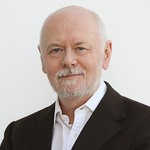Blog
From the Editor's Desk (January 2012)
Tony Addison
January saw the snow arrive in Helsinki. As I look out across the harbour, the scene is one of various shades of white and grey. The temperature is well below zero (minus 20oc). But we are now gaining light, having past the shortest day of the year in December.
Our mood also brightened with the news that UNU-WIDER ranked one place higher, 6th, in the highly competitive category of international development think tanks according to the just released 2011 Global Go-To Think Tanks Report. Congratulations all round!
Turning to this month’s Angle, we begin with an article by Gérard Roland on a just-published UNU-WIDER book on the experience of transition. The late Václav Havel kindly provided this endorsement: ‘There were pleasant and unpleasant surprises in the transition process. It certainly did not occur in a vacuum and this volume, by some of the best experts on the subject, helps shed light on long-run trends in former socialist countries.’
We have a great deal of work presently underway on governance and fragility as part of our ReCom programme. While the issue of governance comes up all the time in development, especially among aid donors, what does it actually mean? Rachel Gisselquist reflects upon this question in our January Angle.
Also in the Angle, Alisa DiCaprio discusses the demand-side of social protection, drawing upon her research on Cambodia. Alisa, together with Amelia U. Santos-Paulino and Philippe De Lombaerde, also has a special issue of the South African Journal of Economics on South-South and North-South trade agreements.
Last year India saw much heated debate on how to define the nation’s poverty line. Miguel Niño Zarazua and myself discuss poverty in India and China in this Angle in the first part of a two-part article. We also made a presentation on ‘Inclusive Growth’ at a Nordic-Baltic Multilateral Development Bank meeting in January and, with Danielle Resnick, a presentation at Finland’s Ministry for Foreign Affairs on ‘Development Effectiveness: New Ideas, New Challenges’. You can see our powerpoints under recent events.
In December, we held a highly successful conference with the African Economic Research Consortium (AERC) in Nairobi on the macroeconomic management of foreign aid, as part of our ReCom programme. This issue of Angle contains a short report from the meeting, and you can expect a longer summary on the ReCom page of our website soon.
The new year brings with it new UNU-WIDER working papers.Public spending is critical for aid to be effective. Paul Collier’s new paper discusses ‘how to spend it’, while Oliver Morrissey looks at the evidence on aid and government fiscal behaviour. Both papers are from our ReCom programme. We also have more working papers from our project on the new development model in Latin America, led for us by Giovanni Andrea Cornia. Miguel Székely, and Claudia Sámano discuss the impact of trade openness on income distribution, while Dante Contreras, and Ricardo Ffrench-Davis examine nearly 40 years of Chile’s experience in growth, inequality and poverty. Other papers include Lucy Scott on women’s empowerment in Bangladesh (see as well her recent articles on Bangladesh in Angle).
Two years ago we emphasized the interaction of three crises: finance, food, and climate. The overall UNU-WIDER research programme contains a great deal that is targeted to this ‘triple crisis’. In a new paper, just published by the African Development Review, Channing Arndt, Finn Tarp and myself discuss the implications of the triple crisis, especially for aid policy. With the financial crisis showing few signs of easing, 2012 will no doubt turn out to be as exciting for economists and economic policy-making as 2011.
Angle returns in February, with a longer report on our first ReCom results meeting in Copenhagen on 27 January, as well as other news from ReCom, and further developments in UNU-WIDER’s research programme. Meanwhile, it’s time to go shovel some snow.
WIDER Angle newsletter
January 2012
ISSN 1238-9544
![]()
 Join the network
Join the network

